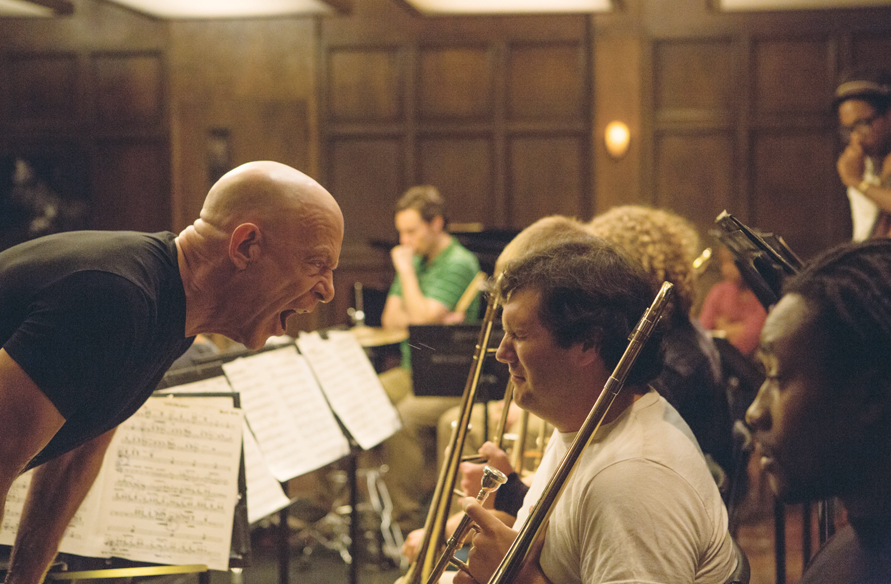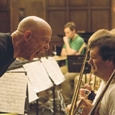
“You must go see Whiplash.” So, I ventured out on a chilly Chicago Sunday and caught the acclaimed movie about a talented young drummer and the tyrannical jazz director who controls his fate. The movie was not what I expected, but I have thought about it many times in the weeks since.
In some ways, the movie lived up to the breathless reviews it has received in some publications. The acting throughout was superb. Veteran actor J.K. Simmons spits poison and fury with every line, creating one of the unforgettable characters of the past year. Miles Teller, who has given fine performances in many film adaptations of popular young adult novels, does excellent work here as the jazz drummer with an obsessive drive to make his conservatory’s top jazz band.
It was particularly refreshing to see a movie celebrate excellence in musical performance. Movies and television programs so frequently portray student musicians as a punchline with hopelessly sloppy playing and non-existent intonation. The jazz in Whiplash is crisp and exciting, which may explain why many people who do not enjoy jazz found the film so engaging. The problem arises when the early realism in the film drifts into preposterous territory.
Although the old school brand of directing probably still exists in many places, it is doubtful that any educator could get away with the endless stream of obscenities, slurs, and cruelty inflicted on the students at fictional Shaffer Conservatory. Screenwriter and director Damien Chazelle has said that he drew on his high school experiences and added inspiration from Buddy Rich and other demanding bandleaders of the past. Chazelle is certainly entitled to bit of creative license in bringing youthful traumas to life. However, when our young hero crashes a rental car on the way to a gig and performs while covered in blood, the movie has become a waking nightmare.
Maybe there are directors like Whiplash’s Terrence Fletcher who continue to terrorize their ensembles. There certainly are many war stories about the demanding college and professional conductors of the past, so there must be some disciples teaching as they were taught. In the sports world, the clash between the old and new schools of coaching continues to this day. This year’s college football championship was won by a coach who was once so insanely devoted to his job that he ended up in the hospital after a particularly stunning defeat in the SEC championship game. The Super Bowl was a battle between unsmiling, unamused Bill Belichick and meditating, perpetually sunny (at least until the game ended) Pete Carroll. Do nice guys finish last? This year, the answer is yes.
To see how a legendary director from an earlier generation handled his duties, take a look at Steve Peterson’s reflections on rehearsals with John Paynter in this issue. This essay is excerpted from an outstanding new publication conceived and shepherded by composer and conductor Mark Camphouse and published by GIA. Although Paynter’s name graced our pages for decades as an author and music reviewer, some younger directors may not know of him.
He lived and worked at a time when the old-school approach was thriving in music education, but John Paynter never needed to raise his voice. Everybody was already listening. His mastery and passion for the music inspired everybody.
The magic of music education takes place in rehearsal rooms every day, without shouting or insults. Too bad the movies never tell that story.






